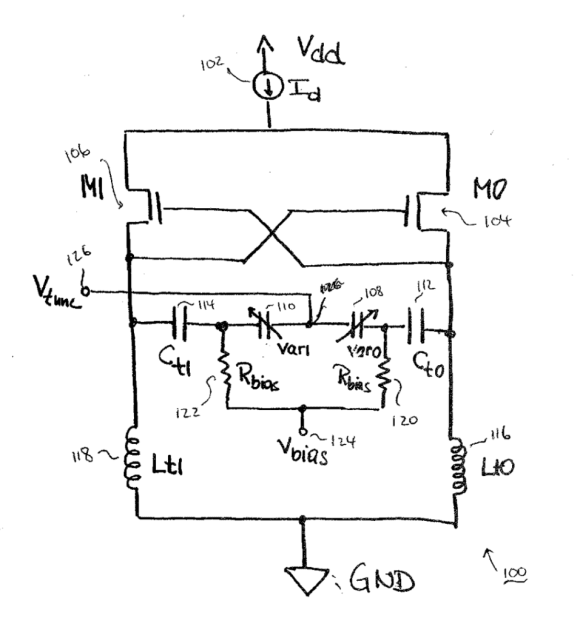 VCOs. Voltage-Controlled Oscillators. You may not know them, but most communications devices have one.
VCOs. Voltage-Controlled Oscillators. You may not know them, but most communications devices have one.
They’ve impacted your life. Probably not as much as mine, but, still.
The Power of Networking
At 15, my high school friend Alex told me he got a job as a tech, getting paid EIGHT DOLLARS(!!) an hour (big money in 1995)! Alex was dual enrolled in electronics vocational school and he got me a job alongside him. I learned how to solder.
The Power of Exposure
The “company,” Integrated Components Systems (ICS), was a guy in a two-bedroom apartment, Alex, and me. It was my first brush with entrepreneurship and electronics.
Eliot Fenton, my boss, was brilliant, energetic, life-loving, kind, fearless. He’d talk to us about technology, business, life, cars, and college.
Had I not met Eliot, it’s unlikely I’d study electrical engineering or considered entrepreneurship. His dual path of engineering and entrepreneurship taught me to attract people from whom you wish to learn and emulate.
The Power of Doing Your Job Well
ICS was exclusively focused on designing and selling voltage-controlled oscillators.
These days, the vast majority of VCOs are fully integrated into a System-on-Chip (SOC). Back then they were composed of a tiny printed circuit board with a transistor, a few resistors, capacitors, and a varactor (variable capacitor).
My job was to assemble and hand solder them. I was a quick study, so Eliot taught me how to test VCOs. A chance to use my hands – and my mind!
A few months later, I learned how to modify a design to alter its specs.
If we had a 400 MHz VCO – but a client wanted a 450 MHz VCO – I needed to reduce this capacitance. However, I still needed to ensure it met phase noise requirements, and tuning range, and current draw.
So, I might have to tweak this resistor or that varactor.
I began to learn how to perform rudimentary multivariate analyses and how to apply heuristics because I lacked the underlying fundamentals about what I was doing.
I got a raise… NINE DOLLARS an hour(!!) and learned good things happen to those who do perform well.
I’m not a firm believer you must choose something you love as a career. That’s a first world luxury and even then, it’s reserved to few. I’m more of a believer if you’re going to do something, do it well. That’s easier when you enjoy what you do, so there is merit in choosing to do things you enjoy when that’s an option.
When doing what you love is not an option, there is even greater merit in learning to love what you must do, and choose to do it well in the process.
The Power of Mentorship
Eliot was more than a boss. He became a friend and, more importantly, a mentor.
He’d tell me stories about the University of Florida, where I’d eventually matriculate. He’d talk about race cars, his escapades, about entrepreneurship.
I saw him outgrow his apartment and get an office, where I was now one of 8-10 employees. I saw him broker a strategic partnership with a larger company. All invaluable, the most important being his mentorship.
From then on, I sought mentors and 25 years later, I still do. It’s why I choose to mentor others. As one of these mentors once told me,
It’s good to learn from your injuries. It’s even better to borrow scar tissue from others when possible.
The Power of Leverage
I was one of only two freshmen getting a coveted paid internship at Lockheed Martin, my rare VCO work experience a contributing factor. Three years later I learned Professor O was a leading VCO expert and got on his research team as the only undergraduate.
I leveraged those experiences to land a GE Healthcare internship.
I returned to the U of F as Professor O’s fully funded graduate research assistant. I finished my master’s degree under his tutelage, becoming a VCO expert along the way.
One begat the next: High school job to internship, to research team, to a debt-free Master’s Degree graduation, to VCO and wireless system expert – which presented a Big Fork in My Road.
Would I accept a job with IBM Global R&D or join little startup that just closed Series A funding?
The Power of Calculated Risks
IBM said, “We love you and plan to make you an offer.”
Startup Bitwave Semiconductor said, “We love you and here is an offer.”
A week later, IBM’s bureaucracy made Bitwave more attractive in comparison. When IBM finally called, they were dismayed to learn I’d accepted Bitwave.
I led VCO Development at Bitwave. Bitwave was developing one of the first software-defined radios and I worked on a variety of subsystems that expanded my understanding of wireless systems.
My time there solidified my passion for product development and entrepreneurship. At Bitwave, I met two MIT professors who would later become my PhD co-advisors.
Doctorate and Bold Type
I earned my doctorate with an “ultra-low power circuits and systems for medical devices” thesis. It covered many electronics, including VCOs, and software all optimized for medical devices that could operate for years from small batteries.
I haven’t worked on VCOs directly a decade now, but I reflect how VCOs were a constant presence in my journey.
In my life, VCOs are emblematic of those seemingly innocuous opportunities that alter our lives when we recognize and pounce on them.
Today, Bold Type, the product development firm specializing in connected, wireless medical devices, makes many things – all of which have at least one VCO inside.
That thought gives me great satisfaction. 😄
Coda: Here is a paper we published on super-regenerative receivers during my PhD studies. These were invented in the 1920s by Edwin Armstrong, the brilliant engineer responsible for many wireless architectures we use to this day.


